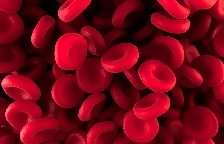First evaluation of sickle cell screening programme published

The first evaluation of the NHS Sickle Cell Screening Programme has found that it is successfully identifying newborn babies with sickle cell disease.
The screening programme, established in 2002, enables the early identification of infants with sickle cell disease. Once children are identified with the disease, early entry into care allows a timely offer of penicillin prophylaxis, a preventative measure against severe infections in children with sickle cell disease, and education and support for parents, both of which are known to reduce morbidity and mortality.
Researchers from King's College London looked at babies with sickle cell disease born in England between 1 September 2010 and 31 August 2015, following them until August 2016. The results, published in Archives of Disease in Childhood show the screening programme works well; 80% of infants were registered into specialist care and prescribed penicillin within the specified timeframe of three months of age. Any deaths that were recorded due to sickle cell disease were very few and only observed in children over one year of age.
Dr Allison Streetly, lead author of the evaluation from King's College London said: "The NHS newborn screening services have achieved outstanding results for both test performance and bloodspot uptake. We should celebrate this achievement and ensure that standards are maintained. There is more to do to achieve optimal follow-up of infants with fail-safe and further efforts are needed to ensure parents are supported so that babies receive all appropriate preventive interventions, including daily penicillin and vaccination which saves lives."
Based on the evaluation, researchers identified several improvements that need to be made to the screening programme. This includes timely intervention, continued support for parents, education of front-line professionals, and prescription of penicillin.
John James, CEO of Sickle Cell Society, said: "As the screening programme continues, we want to see that all babies with sickle cell anaemia get the care and support that they need by the age of three months old. We will be working with parents to ensure they know how to get this care and to make sure that no child goes without it."
More information: Allison Streetly et al. Evaluation of newborn sickle cell screening programme in England: 2010–2016, Archives of Disease in Childhood (2017). DOI: 10.1136/archdischild-2017-313213

















